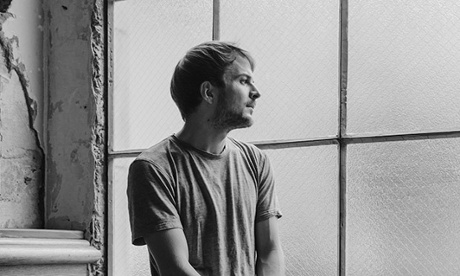
While enjoying the myriad daily offerings of Sydney’s annual Vivid festival, spare a thought for Berlin-based experimental classical musician Nils Frahm.
After enduring a gruelling 26-hour flight to make his Australian performance debut at Sydney Opera House, he will spend only 48 hours on Australian soil before heading back to Germany.
“I am excited about it, but not about the flights. It’s a very nice occasion, though, I am sure, and I am looking forward to it,” laughs the 31-year-old musical innovator, a master not only of the piano but also many other instruments, both conventional and unconventional.
Although it is almost 2am in Copenhagen, Denmark, a weary Frahm – “I am awake enough, I hope, to entertain you” – underestimates himself; he is a wonderful conversationalist: witty, eccentric and interesting.
He is undertaking a musical residency in the homeland of Hans Christian Andersen, the Danish writer whose children’s stories he read as a boy, writing and recording music for an upcoming theatrical production.
A classically trained pianist who began composing “strange little things” as a five-year-old, Frahm is renowned not just for his technical virtuosity but for his brazen and bracing musical experimentation.
His is music that defies easy categorisation with its array of mysterious sounds coaxed from an array of instruments and items best described as unexpected.
Exciting, occasionally bombastic and often utterly entrancing, it is a fusion of classical and contemporary instrumentation that involves synthesisers and draws on elements of the electronica and ambient music genres.
Sure, Frahm can play Brahms or Tchaikovsky with jaw-dropping virtuosic verve, but would Brahms or Tchaikovsky have busted out a toilet brush as a rhythm instrument mid-recital? As Frahm drolly notes, “ah, no!
“I’m playful. I use all kinds of instruments and items to create sounds. I am funny in my approach that way. I try to always approach the piano, which is the base of almost everything I do, as somebody who has never learned it properly, somebody who is completely new to it,” he adds.
“I approach it like someone coming from another time, finding an odd object, discovering what it might be and what it’s capable of. Having this openness to any instrument or object is something very important to my work.”
Since 2005, Frahm has released 10 solo recordings and collaborated with such contemporaries as Icelander Òlafur Arnalds, a fellow neoclassicist and experimental composer who shares Frahm’s adventurous musical spirit.
“Like him, I’m not too interested in being defined. I don’t want people to think I am a classical composer. I am a performer of the piano as an instrument but I haven’t written my classical magnum opus yet.
"I’m trying my own ways of realising musical experiences. I’m borrowing this world we live in, really – sometimes I’m playing in an opera house, like I will in Sydney, sometimes I’m playing a festival, sometimes a little pub or museums. I am borrowing those institutions and their spaces,” he reflects.
Frahms pauses and his laughter echoes down the crackly phone line, a quietly joyous sound, before he finishes his train of thought.
“Classical music is very important, no doubt, but I don’t want to get pinned down. I like to see myself as a composer though, strangely, I feel I’m related more closely to a jazz player than a classical player. The jazz scene doesn’t accept me, so I’m happy that the neoclassical movement lets me be in their field.
"I don’t feel any comparison or any pressure to be like other composers by being associated with that. I like to surprise my listeners and my audiences and they allow me that space and creative freedom, as do the neoclassical people.”
- Nils Frahm plays at the Sydney Opera House’s Joan Sutherland Theatre on 27 May. Details here

